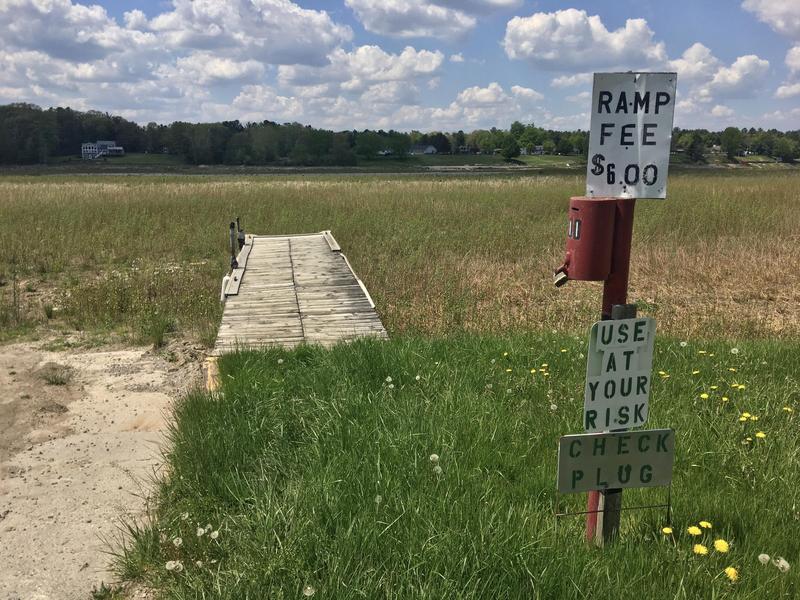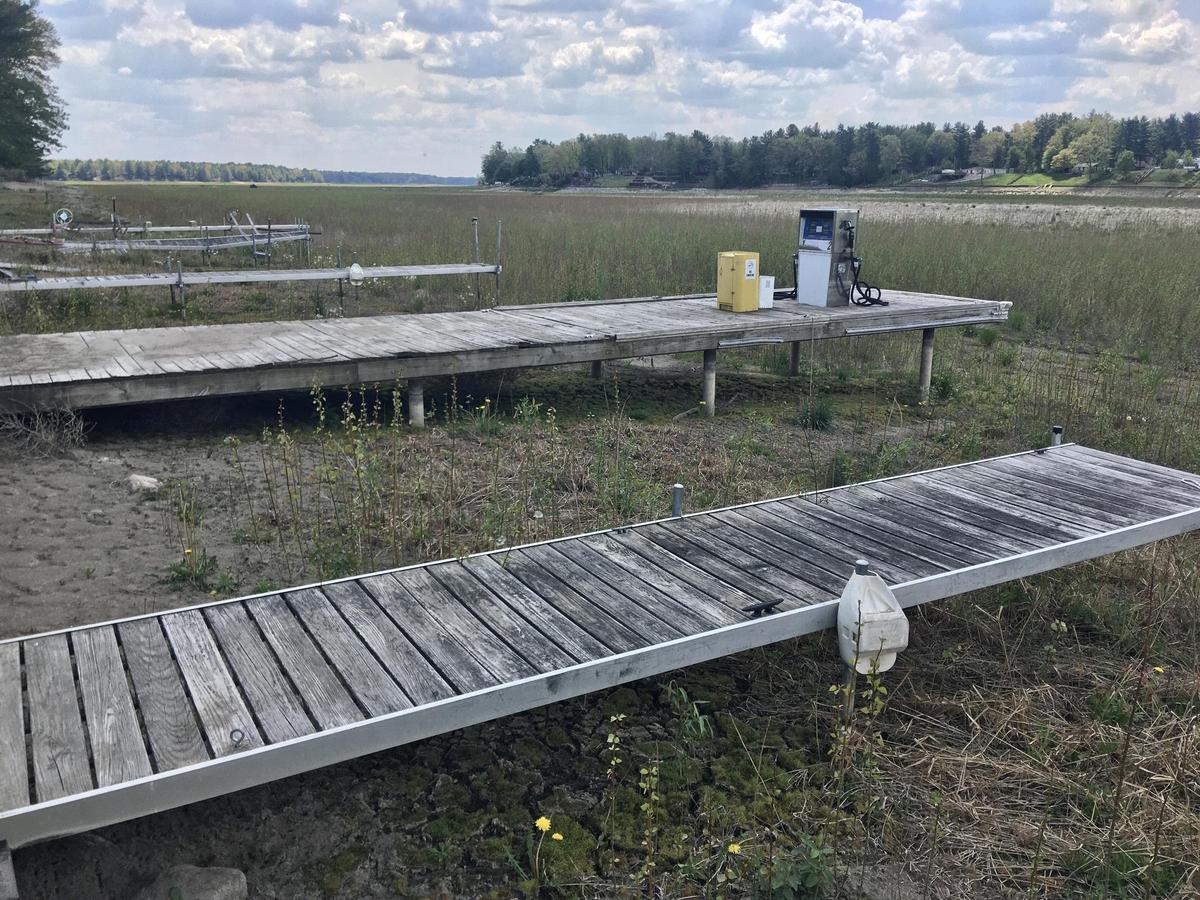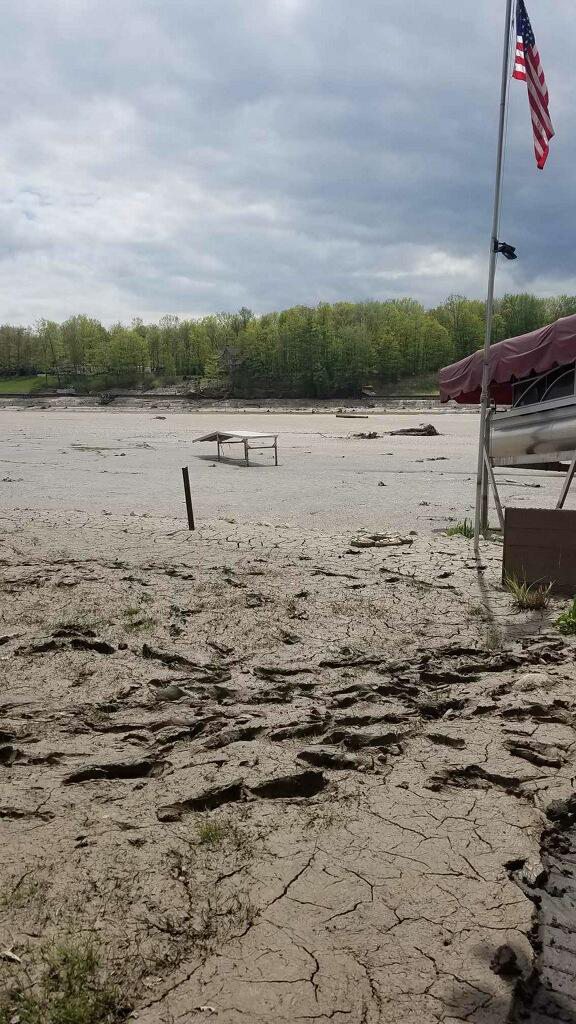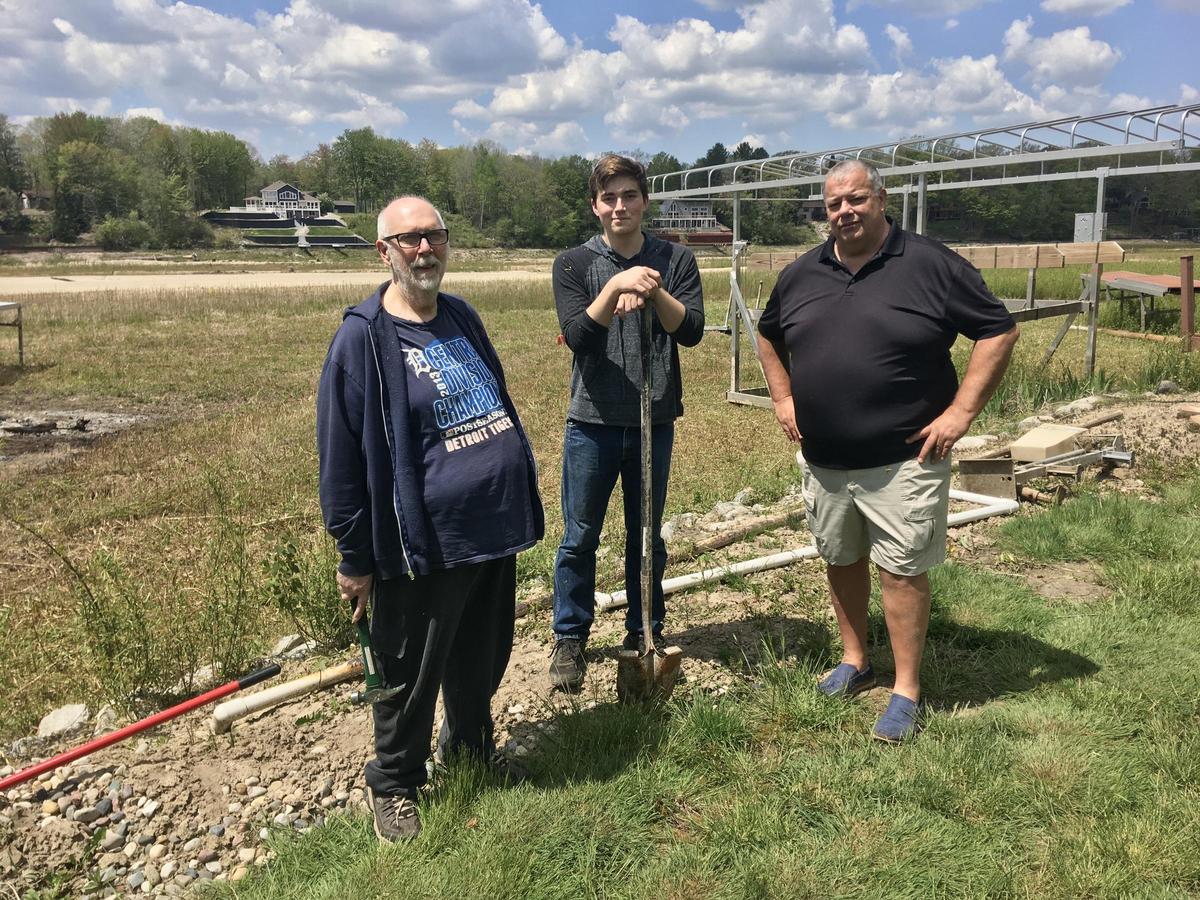Tittabawassee River Dams Will Be Rebuilt, But Who Pays Remains Controversial
About a year ago, a series of dams on the Tittabawassee River failed and the lakes behind the dams emptied. There are plans to refill the lakes, but the results are years away.

What used to be a lake in front of Pete Deliso’s house is now a barren expanse of dirt and brush.
“When the wind blows, it looks like the Sahara Desert,” he says.
He used to live on the lake. The water came right up to his backyard. Then, a year ago, the dam that held the lake back collapsed. The water flooded into his house, and then drained out of the lake like a giant bathtub.
Now, Deliso has to decide whether to stay here and accept the drastically reduced property value and quality of life that comes from living on an arid expanse of former lake — or sell his house for whatever he can get, and move away.

“I’m 73. I don’t know how many more years — I just had major surgery last year, which I’m still not back from. My wife is not well. We’re not poor by any stretch of the imagination, but we’re not wealthy,” he says.
There is a plan to refill this lake. All four of the mid-Michigan dams that broke after heavy rains last year are slated for reconstruction, and they’ll each hold back a lake along the Tittabawassee River.
Tim Holsworth is responsible for raising some of the money that will go toward rebuilding Sanford Lake. That’s the one that Deliso lives on.
Holsworth is aiming for $2 million a year from a community of only a few thousand people.
“I didn’t say we had a high probability of success, but yes, that is the task,” Holsworth says.
And even that amount is just a tiny portion of the total cost of rebuilding. The quasi-governmental agency that took ownership of the dams after they failed says getting the lakes back will take upwards of $300 million.
Donations obviously aren’t going to cut it. The agency needs a way to make people pay.

“Now we’ve got the most controversial issue in this entire project — a special assessment district,” he says.
The district would charge property owners along the drained lakes to raise money for rebuilding.
But the property owners aren’t responsible for the dams collapsing. The property owners are not the reason the lakes are gone.
State and federal investigators blame the dams’ former owner, Boyce Hydro, who ignored numerous safety warnings from regulators before the structures failed. Now that owner has declared bankruptcy.
So Holsworth says the fee on property owners is the best shot they have at getting the lakes back.
Deliso says he’s philosophically opposed to the assessment district, but he feels stuck.
But he says he’s stuck. He can’t sell his house, because its value has dropped so much. And he doesn’t want to leave even if he could.
Deliso says the flood built community. He’s gotten close with neighbors he barely knew before. And he’s holding onto hope that even if he has to pay for it, the dam will be rebuilt, and the lake will come back for good.
To make that happen, a key part of the construction plans this time around is safety.

Dave Rothman is the Vice President of the Four Lakes Task Force. They now own the dams. He says they’re working with an array of experts to make sure the dams are rebuilt right.
“There is a gaggle of consultants working for us,” he says. “We’ve got two companies consulting with us on engineering matters, plus a full-time engineering firm working for us. We’ve got aquatic biologists consulting with us. We’ve got legal experts consulting with us. We’ve got financial experts — financing experts consulting with us.”
Rothman says the task force is also planning appeals to the federal government for grants, but there’s a lot of work that needs to happen first. You can’t go into a legislator’s office without a plan, he says. So, they’re writing up a big, detailed report.
“If you’ve got a report that totals a thousand pages, and you can print it out and drop about 30 pounds of paper in front of somebody in the federal government and say ‘we need help and here’s why,’ I think we’ve got a pretty good chance of getting significant help from our people in Washington,” Rothman says.
Rothman says his goal is to secure federal funding to reduce the burden on property owners and then be boating on the lakes again by 2025.
Listen: Questions remain on who will foot the bill for rebuilding.
Trusted, accurate, up-to-date
WDET is here to keep you informed on essential information, news and resources related to COVID-19.
This is a stressful, insecure time for many. So it’s more important than ever for you, our listeners and readers, who are able to donate to keep supporting WDET’s mission. Please make a gift today.
